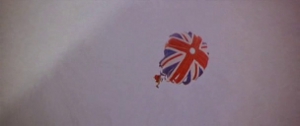by Chad Denton
What’s remarkable about William Hartnell’s interpretation of the Doctor is how much of a lasting foundation it has been, after so many decades and quite a few seismic shifts in culture. Hartnell’s Doctor is an eccentric with an insatiable curiosity and willingness (if not eagerness) to meddle in anything and with anyone; who has a strong anti-authoritarian streak that drives him to talk back to tyrants, petty or powerful, and be personally, passionately outraged by any injustice, no matter how small or “necessary”; and who manages to be both inhumanly detached from events and yet endlessly compassionate, especially to the precious few individuals he deeply respects. With maybe a few quibbles, this broad description is as true for the very first incarnation of the Doctor as it is for the Doctors of this millennium. The lasting appeal of the Doctor rises from what a strong core the character has in spite of passing from writer to writer and actor to actor, and that core is, I think, largely the handiwork of Hartnell himself. Maybe the First Doctor was a crabbier and more sharp-tongued Doctor than what modern audiences weaned on the 2005 series would expect (although he certainly lightened up after the earliest scenes), but Hartnell’s description of the Doctor as “a cross between the Wizard of Oz and Father Christmas” (with a little mild forgetfulness thrown in) still rings true. Continue reading Trash Culture’s Dr. Who Reviews – The First Doctor (1963-1967)


